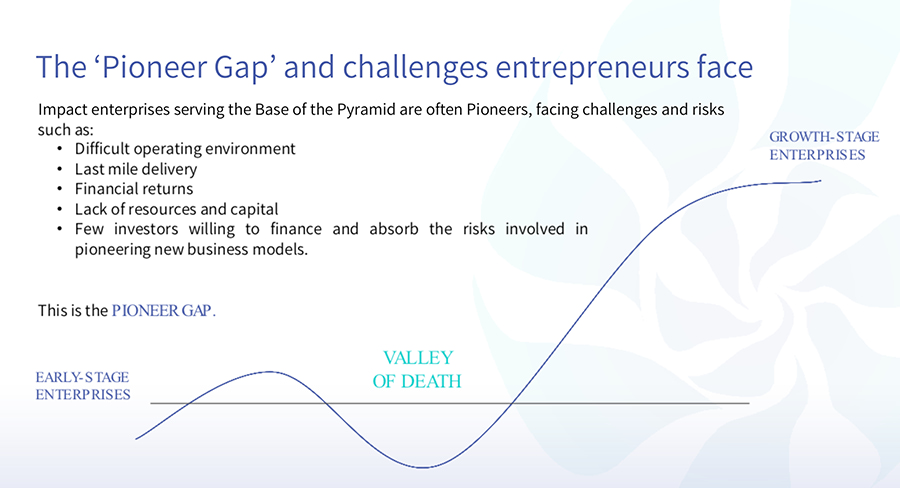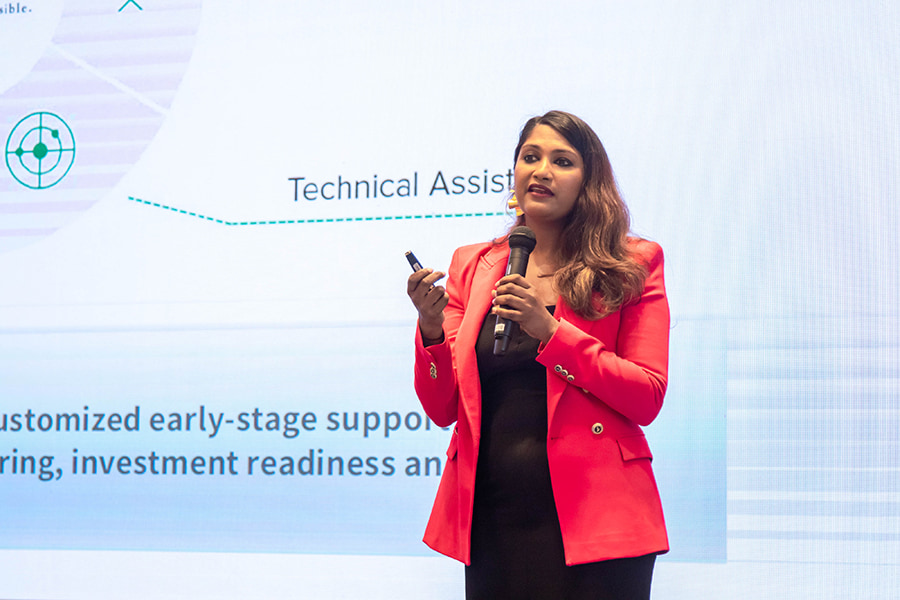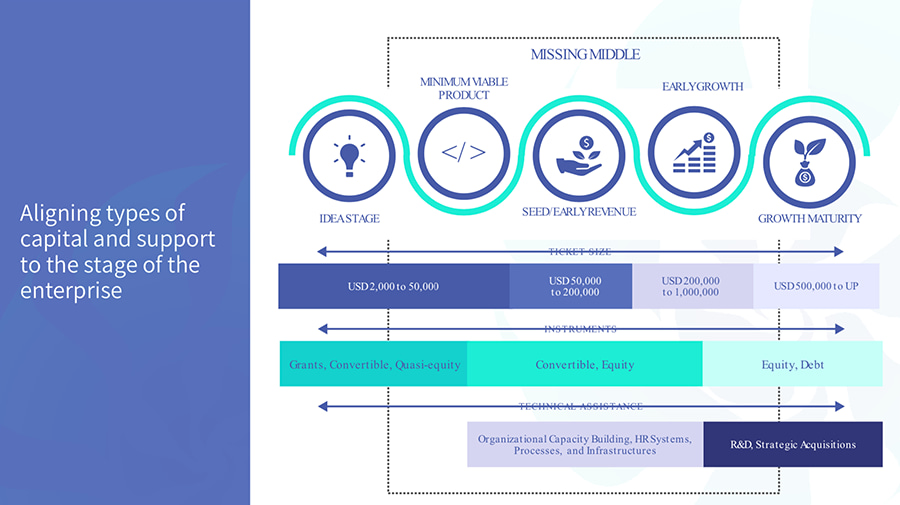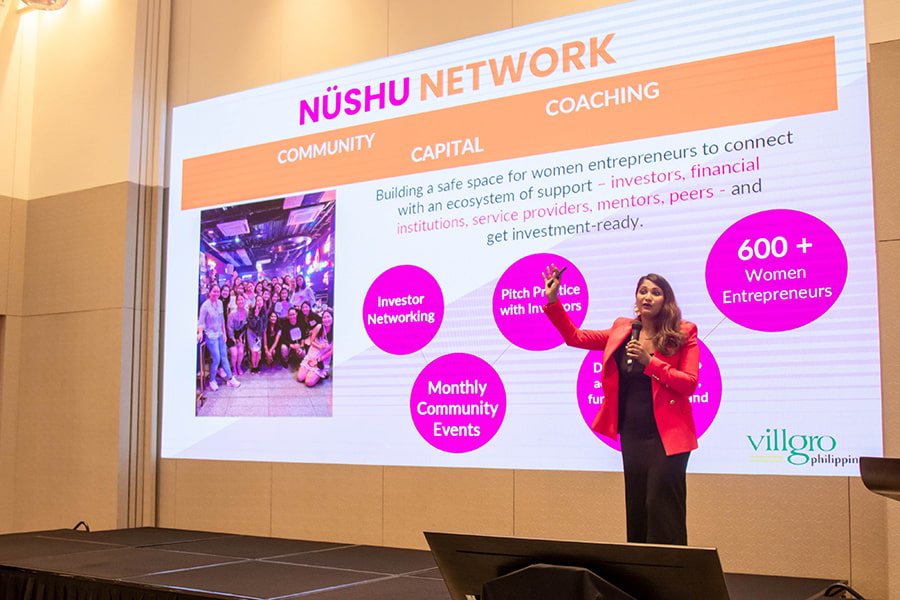At CAMESCO 2023, B2B Cambodia spoke with Priya Thachadi, Co-Founder and CEO of Villgro Philippines, an incubator that helps fund and mentor startups addressing urgent social and climate issues through market-based models.
Thachadi was invited to CAMESCO as a guest speaker to present on the subject of building an inclusive thriving impact ecosystem. During our interview, she shed light on the challenges and opportunities facing entrepreneurs and incubators in Southeast Asia, offering valuable insights into the region's entrepreneurial landscape.
Financial Sustainability Challenges For Southeast Asian Incubators
One of the primary challenges for startup incubators in Southeast Asia is the issue of financial sustainability. Thachadi described how most incubators heavily rely on grant funding, which limits their ability to engage in long-term ecosystem-building initiatives.
“Even though ecosystem building work takes many years, most of the time incubators don't find funding for multiple years, as funding is usually available project-wise or annually, so that limits the type of work incubators can do,” said Thachadi.
“[From a program perspective] I think the other challenge is... because our funding and scope is limited, we may only be able to be present in one city, or usually in the capital cities, and for an entrepreneurship ecosystem to grow, we need to support entrepreneurs… from all around the country,” she added.
Thachadi also emphasised the importance of evolving incubator models to stay relevant in ever-changing entrepreneurial landscapes, particularly expanding their scope into investment.
“Incubators also need to evolve, as we need to be able to retain talent and we need to add things to our scope, so [we need to focus] not only on providing capacity building for entrepreneurs, but also investment,” she said. “Incubators have to evolve into some of these new areas, like investment, but this is always challenging.”
Bridging The 'Pioneer Gap' And Overcoming The Startup 'Valley of Death'
A critical concept Thachadi discussed in her presentation at CAMESCO 2023 was the 'pioneer gap', which describes the burden undertaken by enterprises pioneering new business models particularly for social change. This gap is most often caused by a misalignment between investor demands and the difficulty of building businesses that serve low-income customers.
Within this gap falls the startup ‘valley of death’ – an early stage in the startup lifecycle where newly established businesses struggle to secure the needed funding for growth and development and are unable to generate revenue to cover operating costs.
“The valley of death is actually a very common phenomenon, because in any ecosystem, whether it's a developed ecosystem or an emerging one like in Cambodia or the Philippines, a large number of the businesses that start up don't actually succeed,” explained Thachadi.

Thachadi listed securing capital, achieving product-market fit, and efficiently managing team dynamics as some of the main challenges faced by entrepreneurs during this crucial stage. To overcome these hurdles, she emphasised the need for collaboration among various ecosystem stakeholders, as well as the provision of mentorship and funding support.
“This is not a phenomenon that is only in Southeast Asia, Cambodia or in the Philippines, it’s global,” she stressed. “The question for us as an ecosystem is: how do we make sure, as an entrepreneur support organisation (ESO), that we support entrepreneurs and help them cross the valley of death?"
You need funding, you need business support, mentoring, coaching, access to the market, and not just for a small group of people or for a single startup… different players need to come together to help startups cross the valley of death.
Is Cambodia’s Entrepreneurial Ecosystem Equipped To Support Startups Through The ‘Valley Of Death’?
While Thachadi herself is not based in Cambodia, her company, Villgro Philippines, runs regional programs to support entrepreneurs across South and Southeast Asia and has previously provided support to a company in Cambodia through Habitat for Humanity’s ShelterTech Accelerator.
Thachadi shared that attending CAMESCO 2023 had allowed her to become more familiar with the local ecosystem actors in Cambodia, including Khmer Enterprise (KE), an organisation established by the Ministry of Economy and Finance to act as the main implementation unit of the ministry’s ‘Entrepreneurship Development Fund’ (EDF).
She extended praise to KE's vision and approach and noted that most places in the world still lack a similar centralised body that supports entrepreneurship, so Cambodian startups can benefit a lot from this support base.
“I was very impressed by the vision and platform of Khmer Enterprise, I think it's quite progressive,” said Thachadi. “I don't think many countries actually have a central body that is thinking about the whole ecosystem like KE, so it's a great start, I am frankly very impressed by what's going on in Cambodia.”

At the same time, she also highlighted the need to ensure that support reaches a broader spectrum of entrepreneurs at different stages of growth.
“A challenge for [ESOs]..., which I think Khmer Enterprise and its initiatives are trying to address with their investment readiness program, is that a lot of support seems to be concentrated in one area,” said Thachadi. “To be very inclusive, we also need to provide support to companies as they grow because after the initial idea stage, a company will need a different type of support once it has customers.”
The challenge for any ecosystem, including Cambodia, will be in asking how to provide the right type of support along this continuum as companies grow, which is always the tricky part. I do feel like Cambodia has a great start already in terms of its vision, which is quite holistic, but now the important thing will be to make sure that everything is intentional and reaches the right beneficiaries.
Finding Solutions To Gaps In Funding For Entrepreneurs In Cambodia
A lack of diverse funding ‘ticket sizes’ (the amount of capital invested in a company) available for entrepreneurs was mentioned by several guest speakers at CAMESCO as a major challenge that needs to be addressed. In the Cambodian context, available ticket sizes often do not meet the needs of local entrepreneurs, either being far too large or far too small, leaving a large gap in needed funding within the middle ground.

One main reason for this continued gap, Thachadi offered, is due to the fact that many investors approach the market with a predefined criteria of what kind of businesses they are looking to support, which will not necessarily reflect the types of startups in the market seeking capital.
“From an investor perspective… they already know how much they can invest and what type of businesses [they are looking for], that is, they already have their own [investment] ‘thesis’ that they start with, so it's more about them wanting to find those businesses that fit their ‘thesis’, and not all entrepreneurs will,” she said. “This is primarily when you have venture capital (VC) or equity investing kind of money – they just can't support all types of enterprises.”
Addressing this problem, Thachadi suggested, will require two main solutions:
- Facilitating better connections between investors and startups to ensure that investors are aware of the diverse range of opportunities available;
- Diversifying sources of capital within the ecosystem to cater to startups' varying needs.
Not all startups, MSMEs or businesses will need VC capital or large bank loans, they might need a smaller ticket size, working capital, cash flow-based financing, or revenue-based financing.
“We need more people in the ecosystem to come up and provide these kinds of capital and financial products, but that's always the tricky part because for most investors in a young ecosystem, what capital they have available today may not be able to take a lot of risk.
“That's why we need more local investors, we need angel investors, we need blended financing facilities who know how to use philanthropic money to make investments, we need these alternative financing options alongside connections to existing investors,” she added.
Empowering Women Entrepreneurs In Southeast Asia

Thachadi also discussed Villgro's evolving focus on supporting more women-led projects. She highlighted the historical underrepresentation of women in accessing resources and support in startup ecosystems worldwide, and emphasised that successful entrepreneurs are predominantly perceived as male figures, even as the majority of MSMEs and small businesses in Southeast Asia are women-led.
“But when we look at the conversion of how many of these [women-led businesses] actually end up growing…, or how many can actually access financing, the number becomes small,” said Thachadi.
“There are millions of women entrepreneurs across Southeast Asia, but how many of them actually get the right products and support to succeed? That was my starting point.
“Other than the impact on women, it's a business and an underserved market opportunity to support women entrepreneurs with the right financial products and the right type of support… and for us, gender and supporting women is not in isolation, we apply a gender-lens across everything we do as an organisation, such as in our management, our decision-making at all levels, in our board, in our events, and more,” she added.
Expanding Villgro’s Project Scope To Cambodia
When asked if she sees potential for her company to expand its incubator and investment programs to Cambodia, Thachadi appeared positive and expressed an eagerness to connect with innovative businesses in the country and leverage regional initiatives to further support the local entrepreneurial ecosystem.
“I think the first way that we are hoping to provide support is through our regional programs,” said Thachadi.
“My hope is that, through our regional programs in specific sectors like housing or sexual reproductive health, we’ll be able to find entrepreneurs from Cambodia to support. I'm very excited to see [Cambodia] and to come and connect with different players here, so hopefully that will help us enter this market too.”
Read More On Entrepreneurship in Cambodia: